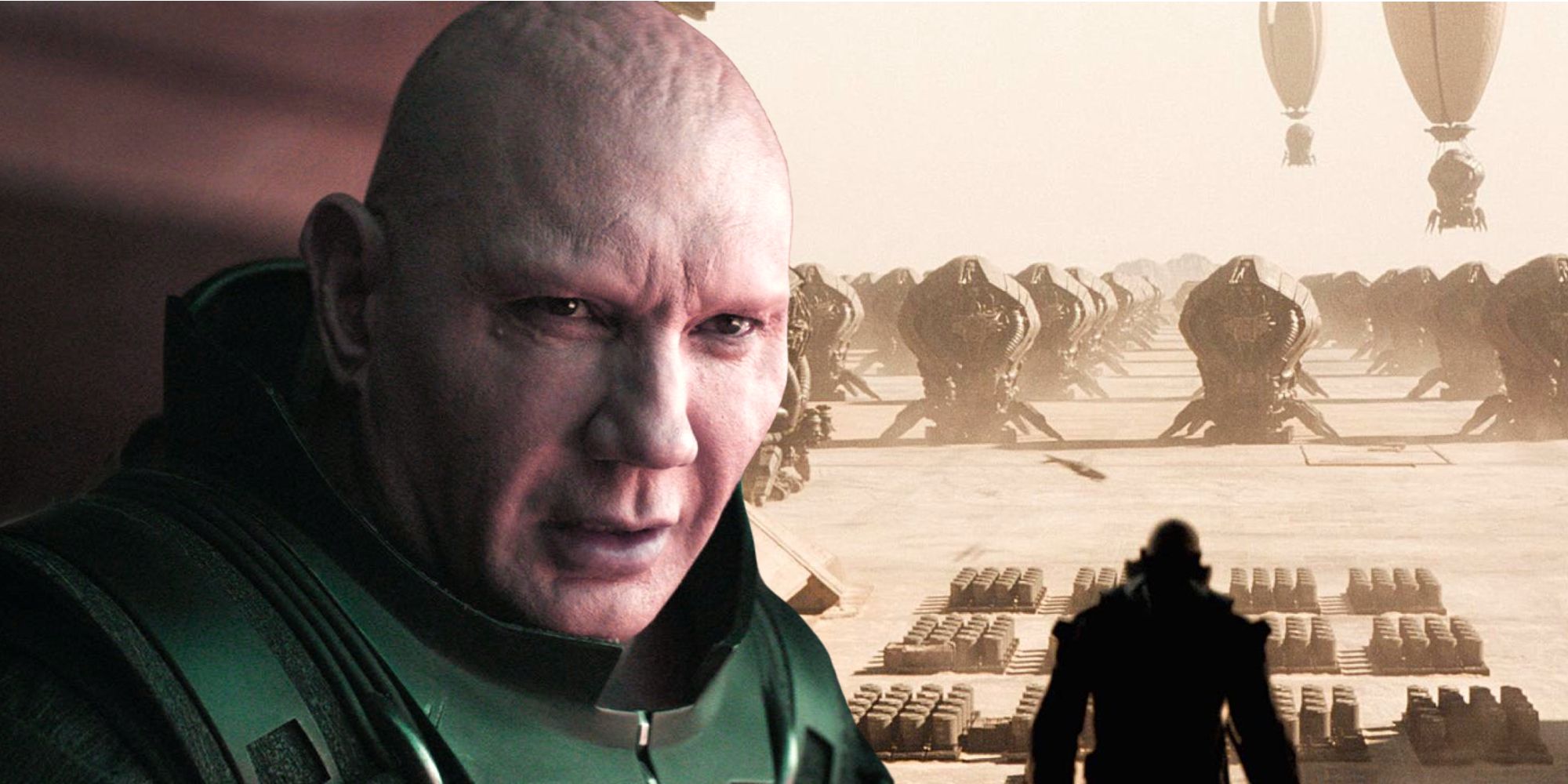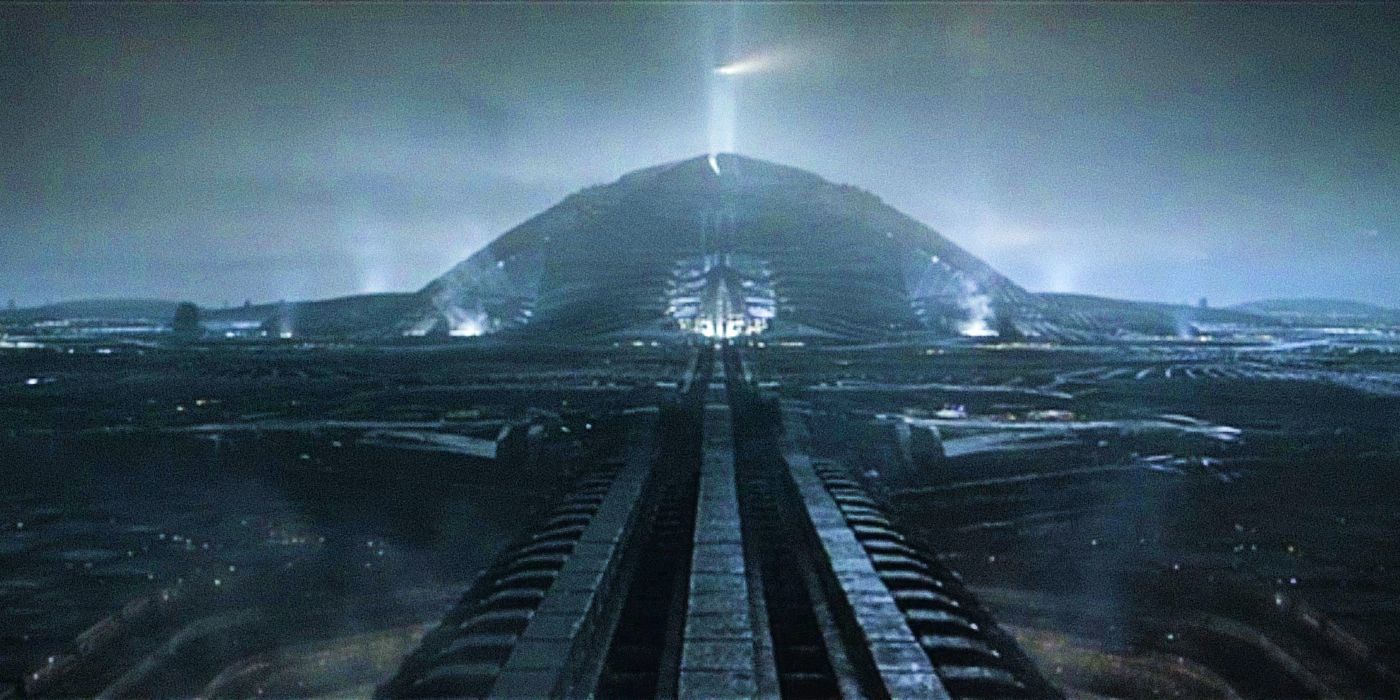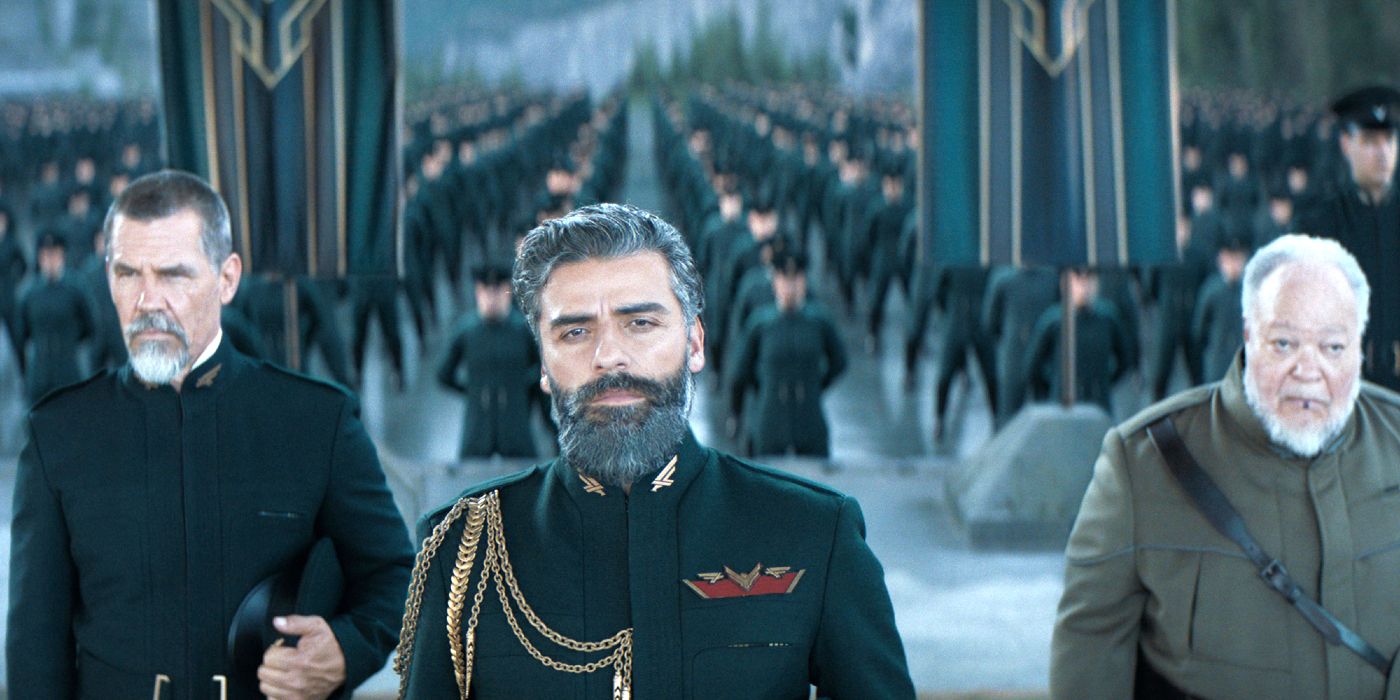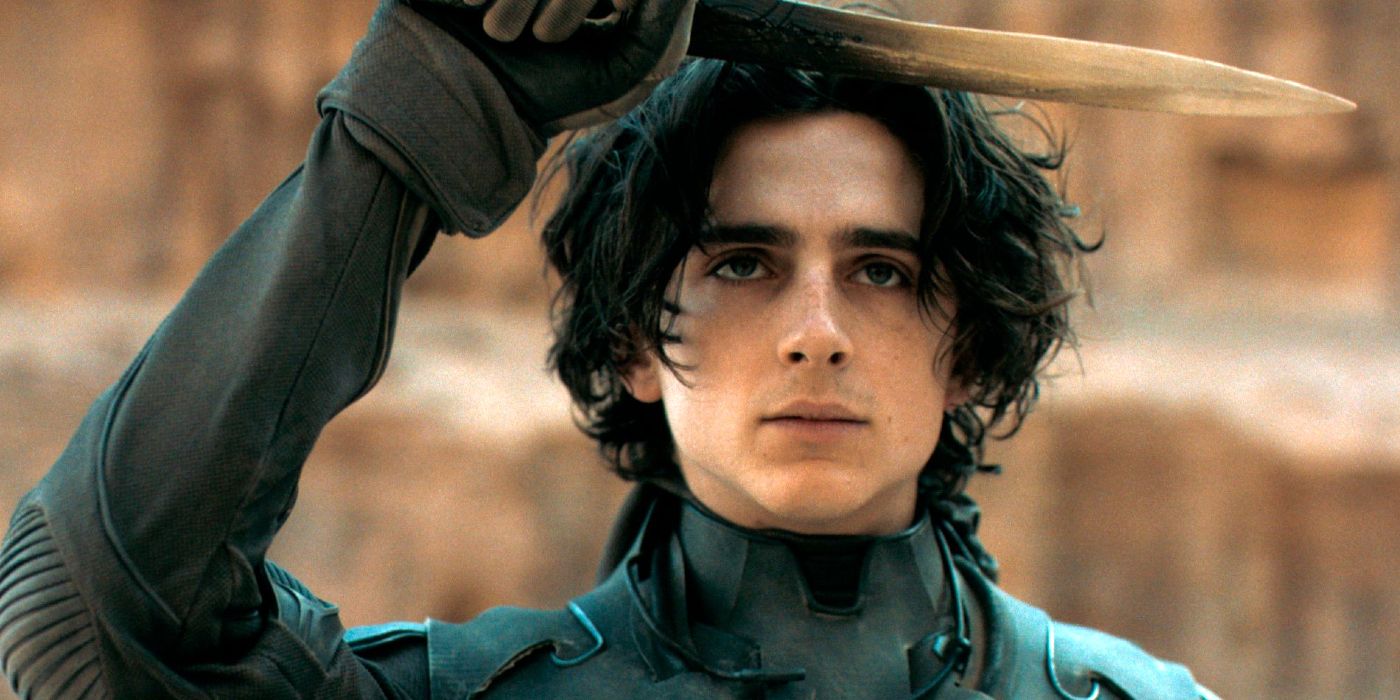Warning: Major Spoilers Ahead for Dune.
Denis Villeneuve’s Dune offers a glimpse into the vast, far-reaching world of the book — seminal being the motivations of House Harkonnen, who trigger the plot in interesting ways. Frank Herbert’s original 1965 sci-fi novel Dune delves deep into the political intrigue that grips the Known Universe, portraying the complex tussle for power between various warring houses. While it is impossible to translate the immense scale and depth of Dune to the big screen, Villeneuve manages to capture the key beats of the narrative while adding his own interpretations to the mix.
Dune is a galaxy-spanning saga about ecological warfare, power play, and unchecked religious zeal corrupting the hearts of the best of men. The events of Dune are triggered by the central conflict between House Harkonnen and House Atreides, a bitterness that spans generations, exacerbated by the need to control the spice melange, intricate layers of nepotism, and shrewd political maneuvering. While House Atreides is a monarchy that rules over the bountiful planet of Caladan, overseen by Duke Leto (played in 2021's Dune by actor Oscar Isaac) right up till the coup, House Harkonnen is a brutal, militarist empire in the dystopian wasteland of Giedi Prime, ruled by Baron Vladimir Harkonnen (Stellan Skarsgård).
Founding an empire on fear and terror, the Harkonnens won the siridar fief of Arrakis in approximately 10130 AG, assuming control of spice mining and supply. Over the decades, the Harkonnens managed to pay the tithe owed to the Emperor via persecution of the Fremen and sub-par infrastructure and pay, amassing considerable wealth in the process. As seen in the first half of Dune, Duke Leto takes over the mining operations in Arrakis at the request of the Padishah Emperor Shaddam Corrino IV, who lays a nefarious trap for House Atreides, owing to a newly-formed alliance with the Harkonnens. Here are the motivations, key players, and possible future plans of House Harkonnen, explained.
An Empire Built On Calculated Brutality - The Legacy of House Harkonnen
Baron Harkonnen ruled the heavily industrialized Giedi Prime with an iron fist, mainly via the maximization of production output and the minimization of production expenses. An empire foreign to the concept of fair play and ethics, House Harkonnen’s governmental foundation was built on sheer fear tactics, as the social order of the planet hinged on treachery and brutal punishment. Due to the bleak ecosystem of the planet, most of the population lived in abject squalor; enrolling in the military to carry out devious schemes to destroy other worlds emerged as the only option to transition out of poverty. It is important to note that the conditions of Giedi Prime are in stark contrast to that of Caladan, which is characterized by lush greenery and large bodies of water, the quality of life being considerably better in comparison.
The brutality of the Harkonnens is referenced throughout the film via dialogue and visual cues. Chani’s (Zendaya) opening monologue describes the torture that the Fremen underwent under the Harkonnen regime at Arrakis, while Gurney Halleck (Josh Brolin) points to the fact the Harkonnen forces are trained to kill without fairness in battle or remorse. As it is near-impossible to include minute details about every house on the big screen, Dune does not feature Baron Harkonnen’s habit of preying on young men and children, which was slightly referenced in David Lynch’s 1984 adaptation of Dune. Another glimpse into the typical heartlessness of House Harkonnen is characterized through Glossu Rabban (Dave Bautista), whose conversions with his uncle Vladimir offer a glimpse into the cold-hearted precision with which the military forces function.
A Generation-Spanning Feud - House Atreides VS House Harkonnen
The spice melange is the fundamental block of commerce and technological development in the known universe of Dune because it symbolizes great power. Hence, whoever controls the flow of spice controls the universe by extension, transforming the once poor and overlooked planet of Arrakis into a goldmine of opportunity. This is referenced directly by Chani in her monologue, wherein she explains how her home planet has been heavily exploited for natural resources, especially by the Harkonnens, while the Fremen are forced to live in subjugation. Both House Atreides and House Harkonnen intend to control the flow of spice — which is required for space travel in Dune — although their outlook and perspectives differ greatly. While the Harkonnens are pure capitalists willing to persecute entire communities to garner wealth, House Atreides adopts a more humane way of doing so, especially with the aid of the Fremen. As the Fremen are natural inhabitants of the planet, familiar with its ecology and terrain, Duke Leto prefers to work in cooperation with them to streamline the process further.
Political reasons aside, House Harkonnen and House Atreides share a blood feud spanning generations, fueled mostly by a sense of bitterness. While the Hakonnens have a monopoly on spice production, House Atreides has managed to garner goodwill across the universe, much to the chagrin of the Harkonnens and the Padishah Emperor himself. This is the basis of the newly-formed alliance between the Harkonnens and the Corrins, which eventually leads to the crippling of House Atreides in the second half of Dune, and the eventual death of Duke Leto. This leaves a heavily targeted Lady Jessica (Rebecca Ferguson) and Paul Atreides (Timothée Chalamet) fighting for their lives in the depths of the desert of Arrakis, while the planet is invaded brutally by the Harkonnen military forces.
The Fall of Abject Evil - The Harkonnen Plot in Dune 2
On overtaking Arrakis, Baron Vladimir hands over command of the planet to Rabban, ordering him to sell remaining spice reserves to compensate for the costs incurred during the coup. Meanwhile, Atreides swordmaster Duncan Idaho (Jason Mamoa) and Imperial ecologist Kynes (Sharon Duncan-Brewster) manage to help Paul and Lady Jessica during a Sardaukar attack, and the duo eventually meet the Fremen and their leader, Stilgar (Javier Bardem). As Paul joins the Fremen with the goal of bringing peace on Arrakis towards the climactic ending of Dune, Dune 2 will potentially delve into this gradual rebellion, with Paul embodying the name of Muad'Dib, partly fulfilling the prophecy of his visions. As House Harkonnen and House Corrin failed to factor in Paul’s significance within the greater scheme of things, their machinations will eventually be thwarted by the Fremen rebellion.
However, it is too early to speculate the exact direction in which the events of a potential Dune 2 will unfold, as some parts of the novel need to be sacrificed for the sake of narrative brevity. In Herbert’s novel, as well as Lynch’s adaptation, Paul survives after ingesting the Water of Life, proving himself to be the Kwisatz Haderach, whilst claiming that he is able to transcend the fabric of the past, present, and future at the same time. Paul’s prophetic visions allow him to see the Emperor’s great fleet above Arrakis, and spearhead a guerilla operation against House Harkonnen, putting an end to their power. Keeping this in mind, it is likely that the sequel to Dune will portray the ever-growing brutality of the Harkonnens, followed by the fall of their brutish empire at the hands of Paul Atreides.




